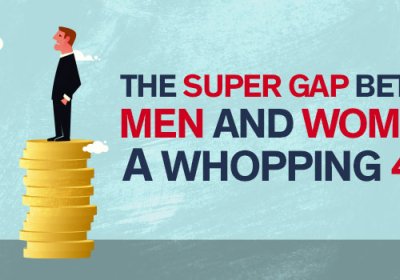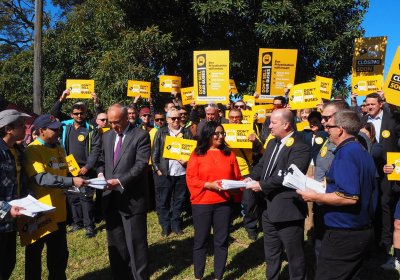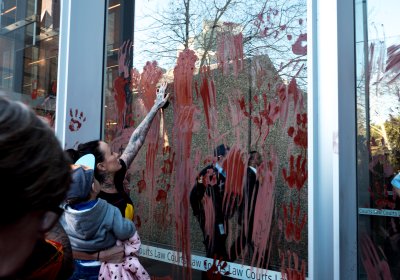In the 1960s, Joy Cummings, a Labor Party activist, locked onto a row of Moreton Bay figs in Islington Park, Newcastle. The majestic trees, which had been earmarked for the chainsaw to widen the road, were saved and still stand today. Cummings went on to be elected to Newcastle Council and in 1974 became Australia’s first female Lord Mayor.
1147
South Australian Yankunytjatjara elder and activist Yami Lester, who was blinded as a teenager by dust from the Maralinga nuclear bomb tests in the 1950s, died on July 21 in Alice Springs, aged 75.
His family said his death "leaves an incredible legacy of better global understanding of the devastation of nuclear bombs and for the ongoing battle for recognition of the consequences of them".
Plebeian Power: Collective Action & Indigenous, Working-Class & Popular Identities in Bolivia
By Alvaro Garcia Linera
Haymarket Books, 2014
345 pp, US$28.00
Alvaro Garcia Linera, twice-elected vice-president of Bolivia, is the continent’s most prominent theoretician-politician to place 21st century Latin American left thought in a Marxist framework.
In launching the report Not so super, for women: Superannuation and women’s retirement outcomes” by David Hetherington and Warwick Smith on July 20, Australian Services Union (ASU) national secretary David Smith said: “Australia’s compulsory superannuation system is failing women. According to the latest figures, women are retiring with around half as much superannuation (53%) as men.”
Bus drivers and supporters rallied outside Burwood Bus Depot on July 20 to oppose plans by the NSW Coalition government to privatise Inner West bus services.
At the rally, petitions containing around 14,000 signatures against the bus privatisation were handed over to Labor and Greens MPs. Petitions with more than 10,000 signatures trigger a debate in state parliament.
The government reportedly announced a call for corporate expressions of interest in the privatisation the same day.
On July 21, a Western Australian Supreme Court jury found the man accused of chasing and killing Aboriginal teen Elijah Doughty with his car was not guilty of manslaughter.
It is the latest demonstration that the legal system is failing Aboriginal people and exposes the depths of a racism that remains the bedrock of mainstream Australian culture.
“In solidarity with Elijah’s family, his community and Kalgoorlie, we stand in protest” was the call by the Aboriginal group Fighting in Solidarity Towards Treaties (FISTT), which organised a rally of about 300 people at the Supreme Court in Sydney on July 24. It was one of a series of protest rallies around the country.
Wiradjuri elder Aunty Jenny Munro asked: “Where is the national outcry for this innocent 14-year-old boy? Where is the justice for the death of an innocent child? There is no justice for a murdered Aboriginal child.
Imagine a workplace where you could be put on a secret register for forgetting to say a word from a call centre script because it would be a breach of company policy. Then, if you left that company and tried to get a new job, your prospective employer would not hire you simply because you were on that register.
You would never know whether you were on that register; you would have no right of appeal; nor would your name ever be removed from it, regardless of whether you were eventually found not guilty of the allegation.
Some 50 activists played protest games, sang and danced in the Commonwealth Bank’s foyer in Sydney on July 24. Stop Adani Sydney spokesperson Rada Germanos told Green Left Weekly: “We’re playing games in the Commonwealth Bank’s Sussex Street foyer calling on it to stop playing games with our collective future and pull out of funding the Adani Carmichael coal mine [in Queensland].”
When I first went to Palestine as a young reporter in the 1960s, I stayed on a kibbutz. The people I met were hard-working, spirited and called themselves socialists.
I liked them. One evening at dinner, I asked about the silhouettes of people in the far distance, beyond our perimeter.
“Arabs", they said, “nomads”. The words were almost spat out.
Members states of the Organization of American States (OAS) have once again failed to reach consensus to “take action on Venezuela,” which Caracas regards as interference in its internal affairs.
At a July 26 meeting of the OAS Permanent Council in Washington, 13 countries read a declaration calling on the Venezuelan government to abandon the July 30 Constituent Assembly elections.
That was two fewer member states than supported a similar resolution at the OAS foreign ministers' meeting on June 19, and five short of the number needed to pass a resolution.
Images of the Bolivarian National Police firing tear gas at protestors in Venezuela cannot be provided to us in large enough quantities by the mainstream media.
- Previous page
- Page 3
- Next page











